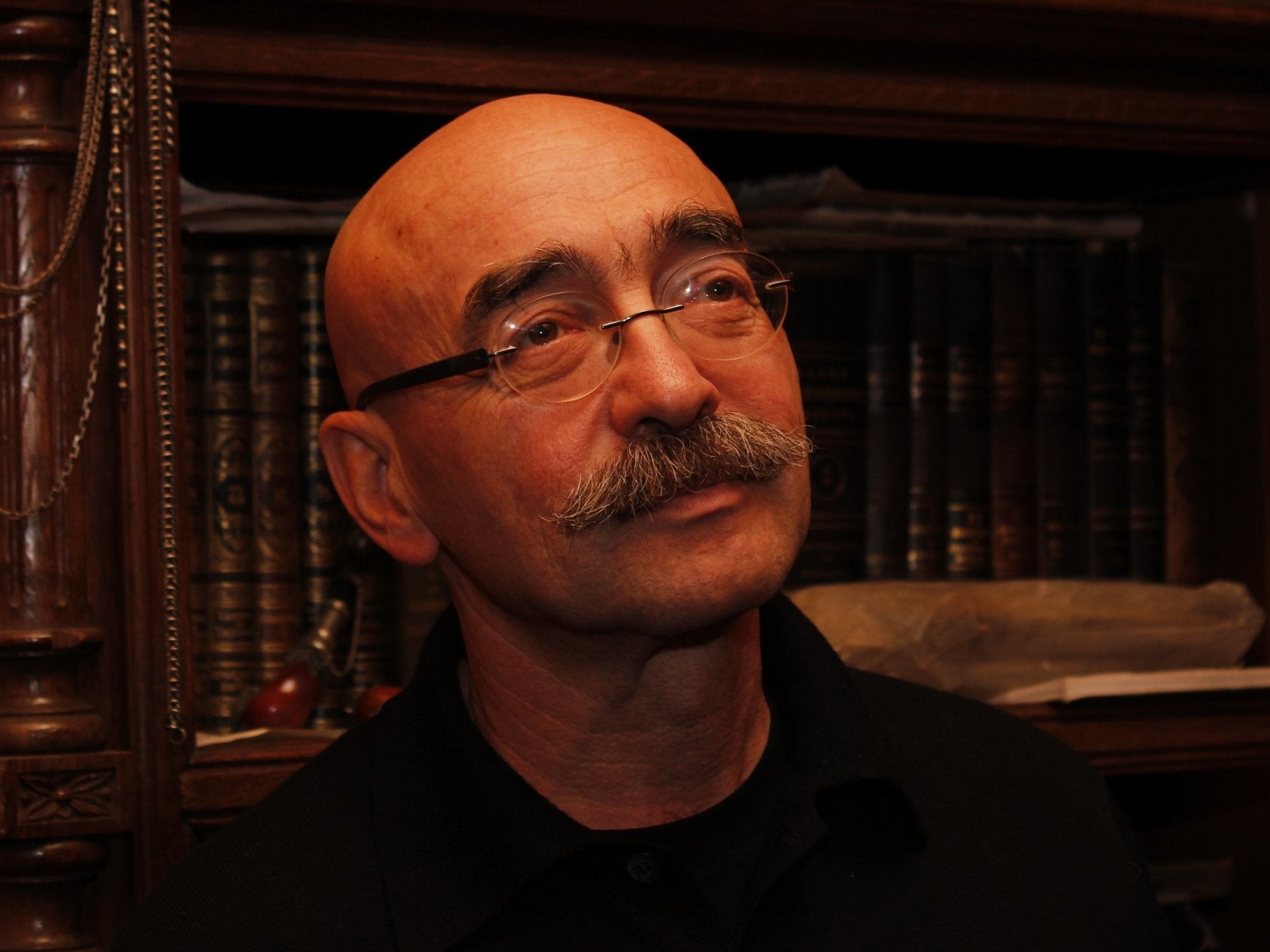‘Gift for satire’: Leading Russian humourist responds to new law banning criticism of the Kremlin
‘Tomorrow they’ll make praising obligatory,’ Andrei Bilzho tells The Independent

Your support helps us to tell the story
From reproductive rights to climate change to Big Tech, The Independent is on the ground when the story is developing. Whether it's investigating the financials of Elon Musk's pro-Trump PAC or producing our latest documentary, 'The A Word', which shines a light on the American women fighting for reproductive rights, we know how important it is to parse out the facts from the messaging.
At such a critical moment in US history, we need reporters on the ground. Your donation allows us to keep sending journalists to speak to both sides of the story.
The Independent is trusted by Americans across the entire political spectrum. And unlike many other quality news outlets, we choose not to lock Americans out of our reporting and analysis with paywalls. We believe quality journalism should be available to everyone, paid for by those who can afford it.
Your support makes all the difference.In the mid-1980s, after 10 years of medical practice, the Russian satirist Andrei Bilzho switched the white coats of psychiatry for what would turn out to be a highly successful career in political caricature.
Over the proceeding years, as Russia frayed amid massive geopolitical upheaval, Bilzho’s acerbic cartoons would draw heavily on insights from his first profession. But it is in recent years, he says, that his psychiatric toolkit has proven to be the most prescient.
Like the emperor with no clothes, Putin believes what people in his close entourage tell him
“Put simply, Franz Kafka would have trouble waking up in Russia today,” he says.
Within the next week, Russian authorities seem set to pass a controversial new law introducing large fines and jail terms for “insulting” the state and its officials online. The latest in a series of legislative initiatives severely limiting online freedoms, the bill is likely to receive Vladimir Putin’s signature shortly after the Federation Council sits on 13 March. At that point, it will become a very risky thing to write naughty posts about the president.
For Bilzho, the new law represents not only an affront to free speech, but the “psychological” regression of a government “shut off from reality”. Like the “emperor with no clothes,” he says, President Putin has come to believe what people in his close entourage tell him. But the intriguing thing was what happens next: “Today you’re talking about a law which says there can be no criticism of those in power. Tomorrow you’ll make praising them obligatory.”
While the bill appears to have the implicit approval from the Kremlin and security services – this is clear from the uber-loyal deputies who presented it – some government agencies have expressed misgivings at the vague wording. The usually loyalist State Communications Watchdog, for example, warned against “unreasonable restrictions of constitutional rights to free speech”. Mikhail Fedotov, head of the president’s own human rights council, said the bill’s “subjectivity” was a marker of its “arbitrariness”. Some, of course, believe this vagueness is intentional and will be used to put pressure on opponents of the regime.
But as with many of Russia’s more draconian laws, the restrictions will likely only ever be applied selectively.
The big cities like Moscow, St Petersburg and Yekaterinburg may continue to provide spaces for relatively free expression, agrees Bilzho. In small towns, the situation will likely be much worse.
“Just imagine you’re a kid in town N, where you know the mayor or governor is lying and stealing, but the school and authorities are on the contrary telling you to praise him,” he says. “That’s the point when the absurdity is no longer kind of funny. It warps the psychology of a whole generation. That’s what makes it so terrible.”
The law would also have an immediate, chilling effect on anyone working in satire, says Bilzho. He did not consider himself immune. The trial of theatre director Kirill Serebrennikov, under house arrest since August 2017, “showed that being famous is no protection”, he says. Perhaps two-thirds of the work he published in the 1990s would no longer be publishable today, he adds.
But satire, says Bilzho, is rarely dead. If Soviet experience was anything to go by, the clampdown could end up a gift for the genre.
“Perhaps now is the time to take the absurdity of the law and run with it,” he says. “Maybe from now on you need to be saying the authorities are oh so very honest, oh so worrying about the people, oh so not syphoning off profits from natural resources, and building huge palaces on the Black Sea for the people to enjoy. The nation will see the untruth for what it is.”
Already, the controversial law has given rise to a new line in memes and jokes. One suggested the initiative to ban offending the government made “perfect sense”.
“You should never speak ill of those who are already gone,” it quipped.
Join our commenting forum
Join thought-provoking conversations, follow other Independent readers and see their replies
Comments